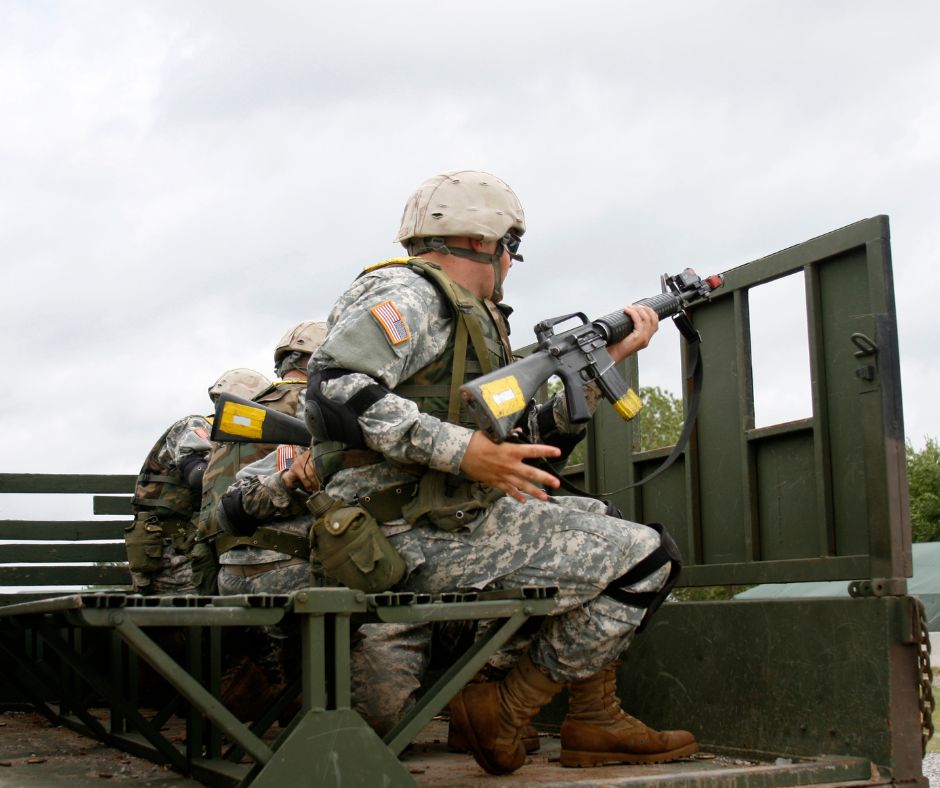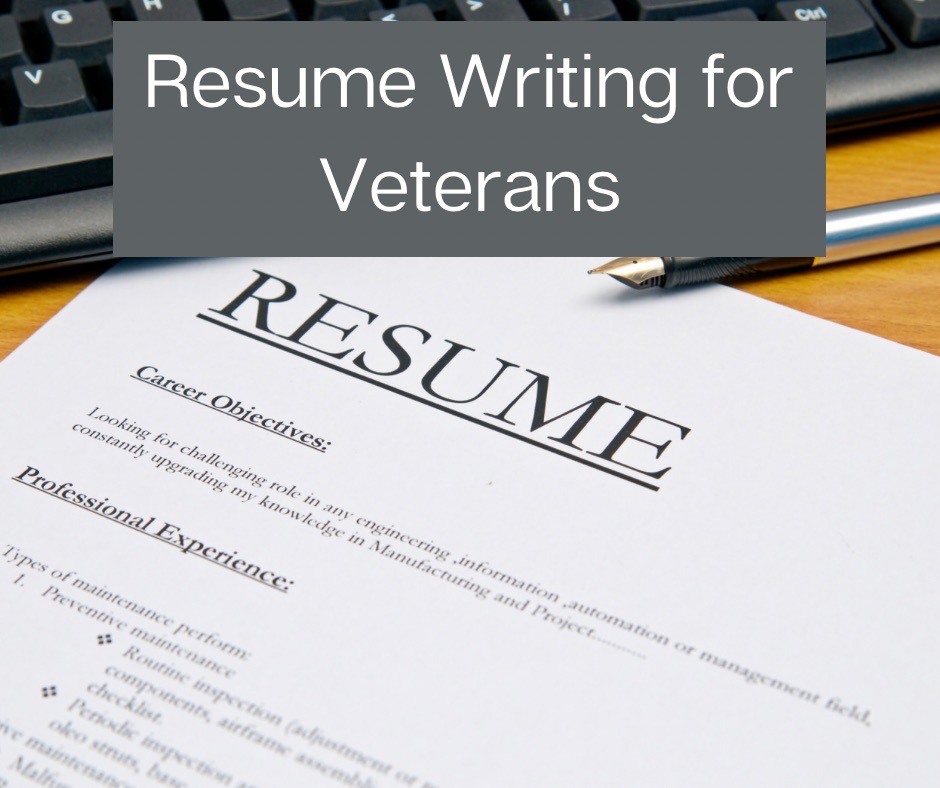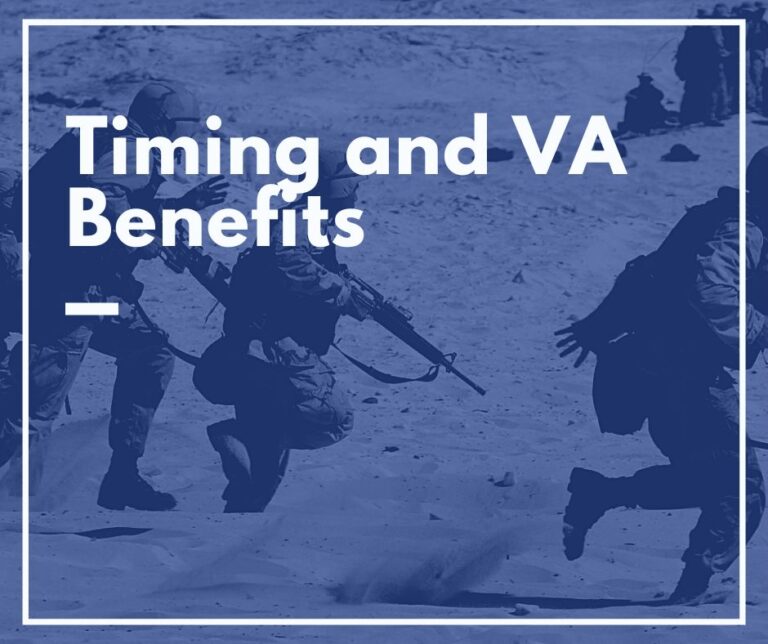Resume Writing for Veterans
NOTE: We are in an unusual job market right now. Companies are desperate for workers and, at least here in Northwest Arkansas, many are offering hiring bonuses. Over the past decades we know that is not normal. It is still important to know how to write a good resume, and even with jobs more easily found getting that particular position you want will require a good resume to properly represent your abilities to a prospective employer.
Building a resume is one of the more difficult things that a prospective employee does as they are preparing to look for a job. The question is always on their mind as to what the employer is looking for. What kind of skills and knowledge will shine on the resume? After serving for 4, 8, 12 or 20+ years, what can I bring to the table that will induce them to hire me?
The truth is that the military imparts a lot of skills and knowledge, but many times it is not easily translated into civilian language. It is difficult to apply for the position of project manager when your resume states you have experience in radio operations, marksmanship and convoy operations. However, even if a Veteran leaves service as an E-4 or E-5, there are certain common training courses that impart a wealth of skills. The trick is to know how to communicate them properly.
Basic Combat Training
Basic Training is the very first course that introduces new service members to the Military. As such, there are a number of important skills that are introduced at this level. Civilians are trained to work as part of a team, to rely on each other, and to support each other.
- Reliability: the ability to do a job and do it well
- Attention to Detail: Make sure every ‘i’ is dotted and ‘t’ is crossed, or make sure the bolt and carrier group is properly installed in the rifle. Attention to detail is a key skill in any civilian job.
- Interpersonal skills: socially adept. Good interpersonal skills enable you to communicate and interact with others according to social and organizational norms.
- Teamwork. – You can work well with others.
- Team-building – This is the ability to foster teamwork among others, bringing them together and engendering a desire for everyone to work toward a mutual goal.

Basic Leaders Course / Advanced Leaders Course
This course is generally the first point of training for preparation to become a Non-Commissioned Officer. As such, it will begin to emphasize leadership skills along with other management skills. Many of these skills will continue to be built upon and emphasized over the remainder of the formal training of Non-Commissioned Officers during their professional development courses.
- Communication – This includes both oral communication and written communication. Regardless of what job you may be applying for, there is no doubt that good communication will play a part.
- Management – We can restate this as supervision.
- Decision Making – All jobs require decision making. This is one of those all-around skills that helps to fill out your resume.
- Training – There are many positions which require the ability to train others. These positions can include training coordinator, training developer, or training manager.
- Leadership – The Non-Commissioned Officer courses (as well as Officer courses) teach leadership. This can translate directly to anything from small team leaders to corporate leaders.
Senior Leaders Course
- Critical Thinking – many jobs require critical thinking skills. This bullet will let employers know that you are able to examine complex problems and come to solutions that are feasible.
- Risk Management – Even though your chosen job may take place in an office, there are risks which come with each job. They may be risks to the bottom line of the company instead of personal risk, but they will be risks which matter to the employer, and your ability to manage risks may make a difference.
We shared a chart a few months ago which took many military awards and translated them into wording which would fit on a resume. You can find a printable copy of the chart in our freebie library, along with several other good-to-have resources for Veterans.
10 Tips for Resume Writing
There is no magical formula for writing the resume. However, there are some best practices. Along with the skills from above, here is a list of 10 best practices for writing impactful resumes.
- Tailor your resume to each job. The only reason that you should send the exact same resume out twice is if you are applying to the exact same job at the same company.
- Conciseness counts. Try to keep your resume to one page. At the MOST, make it two pages.
- Highlight your summary of qualifications. Put this at the top of your resume, right under your name and contact information.
- Numbers matter. Remember writing evaluation reports in the military? The emphasis was on accomplishments that you could quantify. Think of resumes in the same way.
- Include volunteer work. Many employers want to know what their employees are interested in other than a paycheck. Including your volunteer work will showcase what you are passionate about.
- Translate military terms into civilian terms. You were not a Platoon Sergeant. You were a senior supervisor of a team of 60 people. As a Company Commander, you were a Manager of a 120 person company.
- Feel free to include awards and security clearances. This is especially important if you are looking for a security or government position.
- Use keywords from the job description. The employer is searching for this specific thing. They may use software to scan submitted resumes and flag those which contain certain key words or phrases.
- Include a cover letter. If you can locate the name of the hiring supervisor, address your letter to him. HINT: LinkedIn is an excellent resource for this.
- Be persistent. Don’t expect to hear from an employer within the first few days. If you don’t hear something within a week send an email to Human Resources. Hint: You can find names with LinkedIn.
Patience Counts

Be patient and don’t give up. According to recent statistics, it may take 100–200 resumes or more to receive one job offer. This may seem like a staggering number, but in the days of email and applying for jobs online, it is not that surprising. One job posting may receive hundreds of resumes, of which 70–75% will probably be screened out by software or a recruiter. Of those that remain, only a handful (maybe less than 10) will be invited to an interview, with 2-3 being invited back for a final interview.
So if you are looking for a job and haven’t received an offer yet, how many resumes have you sent out? It is a wise idea to have a tracking system. A spreadsheet would work with the company name and the date you sent the resume. Then you can use the spreadsheet to track when you contact the company by email or phone to follow up on the application, as well as receive any response and what that response is.
Networking
One more thing to consider is networking. We have already mentioned LinkedIn. This professional social networking site is a gold mine for job seekers. The site has the ability to search by company name as well as position within the company. This makes it easy to locate people working in Human Resources. The free version of LinkedIn will suffice to search for people. With the Pro version, you can actually message them within the platforms built in message system to make contact.
Along with LinkedIn, remember the other social media sites such as Facebook and Twitter. Even if they don’t provide as fine of detail in searching for individuals in the organization, Twitter can provide news and information on companies you are wanting to work for. Having the latest breaking news on organizations when you walk into an interview can show a prospective employer that you are actually interested in the company.
Social networking is part of it, but consider the need for face-to-face networking as well. As COVID-19 restrictions are being lifted, it is important to start finding opportunities to get out and meet others who may share the same professional interests you share. Some network venues may include VFW and American Legion posts, Chamber of Commerce Business after Hours, networking clubs, civic organizations like Kiwanis or Rotary clubs, cultural events, or volunteer opportunities.
Good luck! As always, email us with any questions or leave a comment.
God Bless,
from NWAVet







